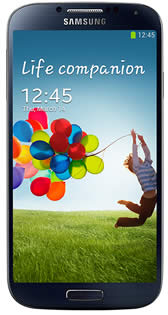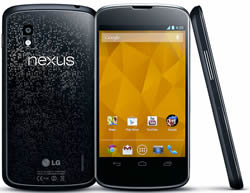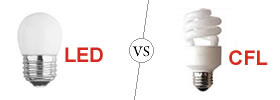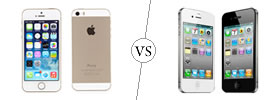Difference between Samsung Galaxy S4 and Nexus 4
Key Difference: Samsung Galaxy S4 is the successor to the very popular Samsung Galaxy S3. The company boasts new features into a slightly smaller and sleeker design. The phone’s screen has been increased to a stunning almost 5 inches with only slight decrease in size of the phone. The screen is a full HD Super AMOLED capacitive touchscreen that provides a greater resolution of 1080 pixels, almost 441ppi density. The Nexus 4 is considered a bargain by many people as Google is offering the phone for a low price and packed with new and innovative features. It also includes a 1.5GHz Quad-core processor.
Technology is a dynamic sector that often changes when new technology replaces the old outdated technology. This is most commonly seen in smartphones and tablets. People are constantly changing their cell phones to keep up with new technologies and the companies release new phones to cater to the demand of the peoples. Smartphones have become a way of life for many people, allowing them to do anything and everything on the go. This includes typing up a document, chatting with friends, video conferencing, writing up reports, checking e-mails, etc.
After building anticipation for almost three months, Samsung has officially released the newest variant of its flagship phone. To many the time spend waiting has not been wasted, while others seem to believe that the phone is not that intriguing to make them upgrade from their current S3s and iPhones to the S4.
 Samsung Galaxy S4 is the successor to the very popular Samsung Galaxy S3. The company boasts new features into a slightly smaller and sleeker design. The phone’s screen has been increased to a stunning almost 5 inches with only slight decrease in size of the phone. The screen is a full HD Super AMOLED capacitive touchscreen that provides a greater resolution of 1080 pixels, almost 441ppi density. The weight of the phone has also been reduced to 130 g and the width of the phone has been reduced by 1mm. The phone has sharper and straighter lines with just curved edges. In terms of design it is quite similar to the S3. The chassis is made up of polycarbonate plastic and the display is highly sensitive that accepts touch through gloves. The phone is available with either the 1.6 GHz octa-core Samsung Exynos 5 processor or the 1.9 GHz Snapdragon Fusion Pro quad-core processor, depending on the market. It is available with 16/32/64 GB internal capacity options and if that is not enough it can be upgraded by another 64 GB using the SD slot. The S4 comes with 2 GB RAM, which has become a norm for smartphones these days.
Samsung Galaxy S4 is the successor to the very popular Samsung Galaxy S3. The company boasts new features into a slightly smaller and sleeker design. The phone’s screen has been increased to a stunning almost 5 inches with only slight decrease in size of the phone. The screen is a full HD Super AMOLED capacitive touchscreen that provides a greater resolution of 1080 pixels, almost 441ppi density. The weight of the phone has also been reduced to 130 g and the width of the phone has been reduced by 1mm. The phone has sharper and straighter lines with just curved edges. In terms of design it is quite similar to the S3. The chassis is made up of polycarbonate plastic and the display is highly sensitive that accepts touch through gloves. The phone is available with either the 1.6 GHz octa-core Samsung Exynos 5 processor or the 1.9 GHz Snapdragon Fusion Pro quad-core processor, depending on the market. It is available with 16/32/64 GB internal capacity options and if that is not enough it can be upgraded by another 64 GB using the SD slot. The S4 comes with 2 GB RAM, which has become a norm for smartphones these days.
The phone comes with a stunning 13 MP primary camera, a 2 MP secondary camera and HD video recording capability. The S4 runs Android 4.2.2 Jelly Bean, but it has yet to be seen if it will offer an upgrade to the new Key Lime Pie version when it is available in mid-2013. The phone is available in two colors Black Mist and White Frost, though there may be chances for other colors once the phone is available for purchasing. Now for the fun part! The phone offers brand new features that are sure to pull in some big spenders. The S4 offers hovering capabilities known as Air Wave, which allows users to swipe between screens, videos, photos without actually touching the screen. Another fun feature is the Smart Scroll and Smart Pause; Smart Scroll uses a sensor and the front camera to automatically scroll when a person is done reading a certain paragraph. The scrolling can also be controlled using tilt. Smart Pause uses the sensor to pause videos automatically when the phone senses that the person is no longer looking at the screen and then resumes when the person looks back at the screen.
Group Play is a feature that allows users to use NFC or Bluetooth to tap and transfer videos, photos, music and even engage in multiplayer games with other S4 users. There are many new camera features as well including dual camera, sound & shot, drama shot, story album, cinema photo and eraser mode. Dual camera allows users to use both the cameras at the same time including when trying to take a photo. The person taking the photo can place their face to the photo taken using the secondary camera or vice-versa. Sound & Shot feature takes 9 seconds of audio when capturing a photo. Drama Shot combines all the actions from a Burst shot into one screen. Story album enables the users to create an album using their shots and audio. Cinema photo feature allows the users to animate one portion of an image, while keeping the rest simple. Eraser Mode allows users to erase objects from the image that they do not wish to include. Other features also include S Health (users can track their diet, steps, exercises, etc.), S Translator, S Voice assistant, Galaxy S Voice Drive and Integrated Optical Reader. Samsung has yet to announce the release date and the price of the S4.
 A number of these companies’ smartphones and tablets run on Android. Android is an open source software, which means that the code is freely available for modification and distribution by device manufacturers, wireless carriers and enthusiast developers. Among the number of various companies, Google has also launched its own line of smartphones based on Android, called the Google Nexus. Each device in the Nexus line is produced via collaboration between Google and a leading original equipment manufacturer (OEM) partner.
A number of these companies’ smartphones and tablets run on Android. Android is an open source software, which means that the code is freely available for modification and distribution by device manufacturers, wireless carriers and enthusiast developers. Among the number of various companies, Google has also launched its own line of smartphones based on Android, called the Google Nexus. Each device in the Nexus line is produced via collaboration between Google and a leading original equipment manufacturer (OEM) partner.
The Nexus devices in general have an advantage over other devices in that the Android in the Nexus devices is pure, i.e. the Android does not have any manufacturer or wireless carrier modifications to it, such as a custom graphical user interface. The Android also has an unlockable bootloader to allow further development and end-user modification, all of which is usually blocked on other Android smartphones.
The Nexus 4 is Google's fourth Nexus-branded Android smartphone. It was produced in collaboration with LG Electronics. The phone features a 1.5 GHz quad-core Snapdragon S4 Pro processor, 2 GB of RAM, 8 or 16 GB of internal storage, front facing 1.3 megapixel camera and an 8 megapixel rear camera and a micro-SIM card tray. The phone runs on the Android 4.2 (Jelly Bean) operating system, which was launched with the phone. The phone also features a new camera technology, called the Photo Sphere. This allows one to take 360 deg Panorama shots.
The information for the detailed table about the two phones has been taken from the Google website, knowyourmobile.com, expertreviews.co.uk, and GSMArena.com.
|
|
Samsung Galaxy S4 |
Nexus 4 |
|
Launch Date |
Q2 of 2013 |
November 2012 |
|
Company |
Samsung Corporation |
Google; designed in collaboration with and manufactured by LG Electronics. |
|
Size |
136.6x69.8x7.9mm |
133.9 x 68.7 x 9.1 mm (5.27 x 2.70 x 0.36 in) |
|
Display |
4.99 inches Full HD Super AMOLED capacitive touchscreen |
4.7 inches True HD IPS Plus capacitive touchscreen, 16M colors |
|
Screen |
1080 x 1920 pixels (~441 ppi pixel density) |
768 x 1280 pixels, (~318 ppi pixel density) |
|
Protection |
Corning Gorilla Glass 3 |
Corning Gorilla Glass 2 |
|
Weight |
130 g |
139g (4.90 oz) |
|
2G Network |
GSM 850 / 900 / 1800 / 1900 |
GSM 850 / 900 / 1800 / 1900 |
|
3G Network |
HSDPA 850 / 900 / 1900 / 2100 |
HSDPA 850 / 900 / 1700 / 1900 / 2100 |
|
4G Network |
LTE availability depends on the market. |
No |
|
GUI |
TouchWiz UI |
Pure Android |
|
CPU speed |
1.6 GHz Octa-Core Samsung Exynos 5 processor or 1.9 GHz Snapdragon Fusion Pro quad-Core processor depending on the market. |
Quad-core 1.5 GHz Krait |
|
GPU |
PowerVR SGX 544MP3 |
Adreno 320 |
|
OS |
Android 4.2.2 (Jelly Bean) |
Android OS, v4.2 (Jelly Bean), upgradable to v4.2.2 (Jelly Bean) |
|
Chipset |
Exynos 5 Octa 5410 |
Qualcomm APQ8064 Snapdragon |
|
RAM |
2 GB |
2 GB RAM |
|
SIM Size |
microSIM |
microSIM |
|
Internal Memory |
16/32/64 GB |
8/16 GB storage |
|
Expandable Memory |
Expandable up to 64 GB |
No |
|
Sensors |
Accelerometer, gyro, proximity, compass, barometer |
Accelerometer, gyro, proximity, compass, barometer |
|
Connectivity |
Bluetooth v4.0 with A2DP, EDR, LE, microUSB v2.0 (MHL), USB On-the-go, USB Host, Wi-Fi 802.11 a/b/g/n/ac, dual-band, DLNA, Wi-Fi Direct, Wi-Fi hotspot |
WiFi 802.11 a/b/g/n, Bluetooth, NFC (Android Beam), Unlocked GSM/UMTS/HSPA+, GSM/EDGE/GPRS, 3G, HSPA+ 42, Wireless charging, SlimPort (TM) |
|
Data |
GPRS, EDGE, WLAN, Bluetooth, USB, NFC, Infrared port. |
WiFi, NFC, GPRS, EDGE, USB |
|
Speed |
HSDPA, 42.2 Mbps; HSUPA, 5.76 Mbps; LTE, Cat3, 50 Mbps UL, 100 Mbps DL |
DC-HSDPA, 42 Mbps; HSDPA, 21 Mbps; HSUPA, 5.76 Mbps |
|
WLAN |
Wi-Fi 802.11 a/b/g/n/ac, dual-band, DLNA, Wi-Fi Direct, Wi-Fi hotspot |
Wi-Fi 802.11 a/b/g/n, dual-band, DLNA, Wi-Fi hotspot |
|
Bluetooth |
Bluetooth v4.0 with A2DP, EDR, LE |
Bluetooth v4.0 with A2DP |
|
USB |
microUSB v2.0 (MHL), USB On-the-go, USB Host |
microUSB (SlimPort) v2.0 |
|
Primary Camera |
13 MP, 4128 x 3096 pixels, autofocus, LED flash |
8 MP, 3264 x 2448 pixels, autofocus, LED flash, check quality |
|
Secondary Camera |
2 MP, zero shutter lag, BIS |
1.3 MP |
|
Video |
1080p@30fps HD video |
1080p@30fps |
|
Camera Features |
Dual camera, sound & shot, drama shot, group play, story album, simultaneous HD video and image recording, geo-tagging, touch focus, face and smile detection, image stabilization, HDR, Cinema Photo, Eraser mode |
Touch focus, geo-tagging, face detection, photo sphere |
|
Sound Enhancement |
TBA |
SNS integration Active noise cancellation with dedicated mic |
|
Audio supported formats |
MP3/WAV/eAAC+/AC3/ FLAC player |
MP3/WAV/eAAC+/ AC3 player |
|
Video supported formats |
MP4/DivX/XviD/WMV/ H.264/H.263 player |
MP4/H.264/ H.263 player |
|
Battery Capacity |
Removable Li-on 2,600 mAh battery |
2100 mAh battery |
|
Available Colors |
Black Mist and White Frost |
Black |
|
Messaging |
SMS(threaded view), MMS, Email, Push Mail, IM, RSS, MS Exchange |
SMS(threaded view), MMS, Email, Push Mail, IM, RSS |
|
Browser |
HTML5, Adobe Flash |
HTML5 |
|
Radio |
TBA |
No |
|
GPS |
Yes, A-GPS support and GLONASS |
A-GPS support and GLONASS |
|
Java |
Yes |
Java MIDP emulator |
|
Additional Features |
|
|
Image Courtesy: samsung.com, battellemedia.com









Add new comment